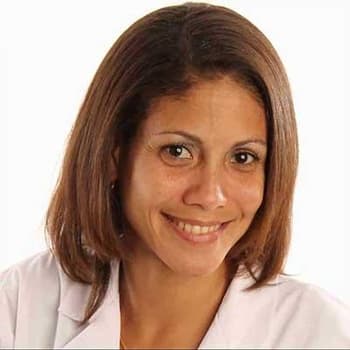Circadian rhythm sleep-wake disorders affect sleep and waking times. Learn more about circadian rhythm sleep-wake statistics and what treatment options are available.
Circadian rhythm sleep-wake disordersinvolve a disruption in the timing of normal sleep-wake cycles. The brain has an internal clock known as thesuprachiasmatic nucleus (SCN)that regulates the timing of specific rhythms such as sleep, hormonal and temperature rhythms.
Visual cues such as light and darkness are communicated to this control center through the eyes, and even exercise or when a person eats can help synchronize this 24-hour internal clock. When this internal clock is disturbed for external or internal reasons, the result is the inability to go to sleep or wake up at appropriate times for work or school.
According to the Diagnostic and Statistical Manual of Mental Health Disorders, there are five different types of circadian rhythm sleep-wake disorders. A diagnosis is made based on individual stress and impaired ability to function in social, occupational, or educational activities.
Prevalence of Circadian Rhythm Sleep-Wake Disorders
The American Academy of Sleep Disorders states that theprevalence of circadian rhythm sleep-wake disordersis unknown in the general population. However, a review of the various sleep-wake disorders can help shed light on the prevalence and risk factors for each type of sleep-wake disorder.
Delayed Sleep Phase Type
This type of sleep disorder occurs when a person repeatedly falls asleep two or more hours after they purposefully intend to. This pattern of delayed sleep leads to chronic symptoms of insomnia and sleepiness in the morning or daytime hours.
Delayed sleep phase disorder is the most common of the circadian rhythm sleep disorders, with anestimated prevalenceof 0.17% in the U.S. population and 7–16% prevalence among adolescents. Some research suggests that there may be a genetic link to this sleep disorder.
Advanced Sleep Phase Type
This type of sleep-wake disorder is characterized by a person falling asleep or waking up two or more hours earlier than desired or planned. Symptoms can include insomnia in the early hours of the morning and sleepiness during the day.
This type is commonly seen among middle-aged and older adults. The estimated prevalence is around1%in middle-aged adults.
Non-24 Hour Sleep-Wake Type
Non-24 hour sleep-wake type affects50%of blind people and is considered rare in sighted people. It is characterized by a pattern of sleep that is not in line with the 24-hour day of light and dark.
Because the internal clock of those affected with this type of sleep-wake disorder runs on its own schedule independent of time of day, these individuals often experience sleep and waking at unconventional times. Although there are periods where the internal clock may be aligned with a 24-hour day, there is usually a predictable drift toward later sleep and wake times.
Irregular Sleep-Wake Type
This type doesn’t have a main sleep time during a 24-hour period but instead is characterized by sleeping periods broken up into multiple short periods. Typical symptoms include night-time insomnia and sleepiness accompanied by napping during the day.
This type of disorder is commonly seen among those with dementia, children who are mentally challenged or individuals with traumatic brain injuries.
Shift Work Type
This type of sleep-wake disorder is directly related to working night-shifts or times outside of the 9 a.m.–5 p.m. daytime window. Typical symptoms include insomnia, sleepiness during the daytime, sleepiness at work and difficulty sleeping at home.
Jet Lag
Although jet lag is not explicitly listed as a type under circadian sleep-wake disorders, it does affect an individual’s internal clock and circadian rhythm. As a result of traveling across multiple time zones, jet lag can cause a temporary misalignment of a person’s internal clock, resulting in difficulty falling or staying asleep, daytime sleepiness and feeling of general malaise.
Sleep-Wake Disorders and Co-Occurring Conditions
Sleep-wake disorders can affect anyone. Inone studyof the adult population, chronicinsomniawas present in 33% of cases. Certain sleep disturbances are also commonly seen alongside other mental health conditions and can affect the quality of life and treatment outcomes of those individuals.
Sleep disturbances and changes in the circadian rhythm can have effects on the mood of even healthy individuals. Research shows that this effect is even more profound on those who havedepression. One study found that up to90%of depressed people reported difficulty falling and staying asleep and waking up earlier than desired in the morning.
Researchsuggests that circadian rhythm sleep disorders are prominent in those withbipolar disorderand can even be considered to be a trait marker for the mental health condition. During manic phases,69–99%of bipolar individuals report a lessened need for sleep, resulting in difficulty falling and staying asleep. During the depressive phase, excessive sleepiness is reported in 38–78% of individuals with bipolar disorder.
Substance abuse and sleep-wake disorderscan often be seen together.Studies showthat substance abuse can cause certain sleep disorders, and difficulty sleeping may bring on substance misuse and dependence.
Circadian Rhythm Sleep-Wake Disorder Treatment and Prognosis
Circadian rhythm treatmentis dependent on the type of sleep-wake disorder and the individual impact it has on the person.Typical treatmentcan include:
- Manipulation of light and dark exposure
- Adherence to good sleep habits
- Regulation of sleep and wake times
- Timed bright light therapy to delay or advance sleeping phases
- Melatonin supplementation
- Structured social and physical activities
Theprognosis for circadian rhythm sleep-wake disordersis favorable. In addition to good sleep habits, behavioral techniques such as avoiding naps, maintaining consistent sleep and wake times, exercising regularly and avoiding stimulating substances such as coffee or nicotine near bedtimes have proved helpful.Living with a circadian rhythm sleep-wake disorderdoesn’t have to be permanent; many find relief from their symptoms and return to healthy sleeping patterns.
If you or someone you know is suffering from significant sleep disturbances alongside substance misuse, pleasereach outto The Recovery Village. One of our representatives can discuss an appropriate treatment plan for you or your loved one.
















